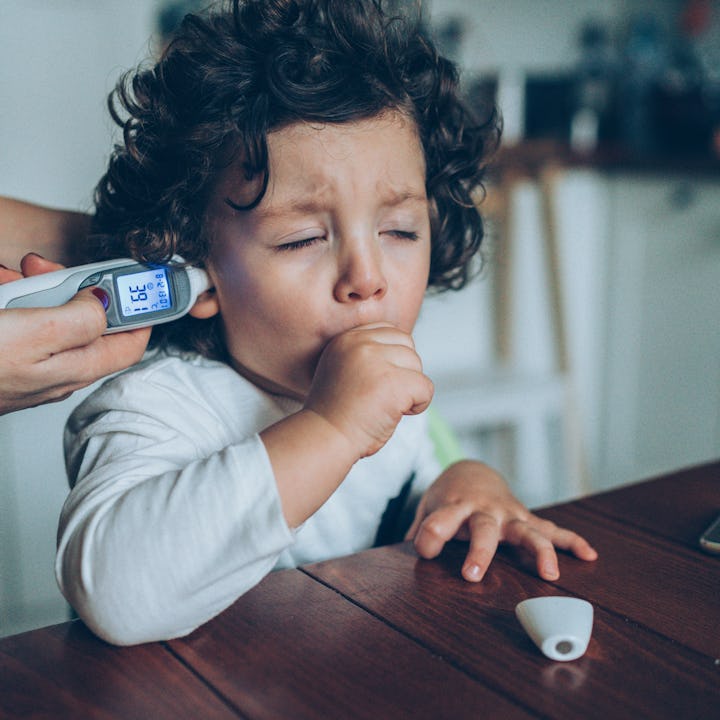A New Study Links The Omicron Variant To Rising Cases Of Croup In Kids
Omicron has caused a wave of severe cases of croup, characterized by a ‘seal bark,’ in infants and young children.

We are in yet another wave of COVID-19. While the current variant of Omicron is reportedly less severe, it is also much more contagious — and as one study suggests, it is also more strongly linked to severe cases of laryngotracheobronchitis, or croup, in younger children than previous variants.
The small study, published in peer-reviewed medical journal Pediatrics, focused on croup cases at one hospital in Massachusetts during the pandemic. The findings, however, back up anecdotal evidence from around the world that this coronavirus variant is tied to the upper respiratory infection in children.
Croup is a viral infection of the upper respiratory tract that typically causes a barking cough, fever, and labored breathing, more often in children than adults. If left untreated, severe cases can become fatal.
Between March 1, 2020, and January 15, 2022, the researchers looked at 75 children diagnosed with COVID-19-associated croup, 81% of which occurred during the Omicron period.
While the exact reason this variant tends to lead to croup is not exactly known, medical experts believe it is because other variants, like Delta, tended to target the lower respiratory tract and lungs, while Omicron typically targets the upper respiratory tract.
The researchers also noted that “the observed rates of hospitalization [due to COVID-19-associated croup] and redosing of croup-directed therapies may indicate a more severe phenotype compared to other viral etiologies.”
“Most cases of croup can be treated in the ED or pediatrician’s office with the steroid dexamethasone and supportive care,” Dr. Ryan Brewster, one of the study’s leads, told Boston’s Children Hospital.
“Our relatively high rate of hospitalization and the number of treatments hospitalized kids needed — an average of six doses of dexamethasone and eight treatments with nebulized epinephrine — suggests that COVID-19 might cause more severe croup than other viruses. We need more research to determine the best treatment options for these children.”
Due to the study’s small size, more research still needs to be done to discover croup’s exact ties to the Omicron variant. It’s also important to note that if your child has croup, it doesn’t automatically mean they also have Covid, but it is worth checking.
While many viruses can cause croup, you should also consider the possibility that your child has COVID-19,” Dr. Jonathan Mansbach, the chief of Hospital Medicine at Boston Children’s who oversaw the study, said. “Consider getting testing them and other family members tested, especially if there’s reason to think they’ve been exposed.”
In the mean time, it’s important to stay up-to-date on boosters, make sure eligible children are getting vaccinated, and test regularly to keep complications like COVID-19-associated croup out of the picture.